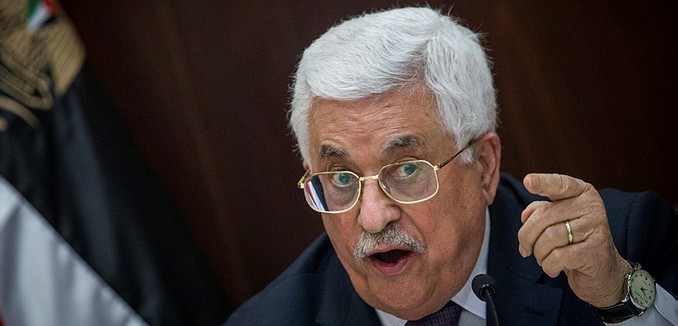Last week’s vote in the United Nations Security Council to condemn Israel “does nothing to help the Palestinians in practical terms,” Walter Russell Mead, a distinguished fellow at the Hudson Institute, wrote in an analysis Sunday.
Mead observed that while the Palestinians have developed an effective diplomatic program to promote their cause, they have failed to create the institutions necessary for successful statehood.
Not only have the Palestinian territories devolved into two micro-states (Gaza and the West Bank, so that instead of a two-state solution one would have to speak of a three state solution barring a Palestinian civil war), but both Hamas in Gaza and Fatah in the West Bank have become increasingly corrupt, ineffective and exhausted. Both of the major Palestinian political organizations depend on foreign paymasters to cover their expenses; neither has shown much ability to build a real state or to solve the problems of the Palestinian people.
The Palestinian Authority’s allies have often been less than dependable partners in furthering the cause of Palestinian statehood, Mead noted. Ironically, the PA’s Sunni Arab benefactors “are so weak and divided that they look to Israel as a defender of the Sunni world against the Persians and the Shi’a.”
The lesson for the Palestinians, Mead concluded, is that “diplomatic success when not backed by military and political effectiveness does not help you much in the long run.”
Mead’s observations are consistent with recent assessments made by other experts that a Palestinian state would be doomed to failure at this stage.
In a September analysis written for Newsweek, Jonathan Schanzer, the vice president for research of the Foundation for Defense of Democracies, explained that Palestinian Authority President Mahmoud Abbas’s rule was increasingly autocratic, with Abbas showing little interest in establishing effective government institutions.
Political challengers are put down with brutality, press freedom has shriveled, and allegations of corruption swirl. The result is a brittle, autocratic government increasingly viewed as a tool for Abbas to wield power, rather than a state in the making.
The Gaza Strip, which is ruled by the Iran-backed terrorist organization Hamas, isn’t any better off, Schanzer wrote; Hamas rules Gaza “like a mob syndicate” which “continues to prepare for more conflict with Israel rather than dealing with the economic problems of the people it governs.”
Former Israeli Defense Minister Moshe Ya’alon told an audience at the Washington Institute for Near East Policy in September that immediate separation between Israel and the Palestinians would not lead to peace. “How can you separate?” Ya’alon asked during the talk. “I’m not talking about infrastructure, water, electricity – security. [Abbas] can’t survive a day without our security activities. Yes we have to say they do part of the job, we do most of the job in fighting Hamas, Palestinians Islamic Jihad, [ISIS] in Judea and Samaria.”
Grant Rumley, a research fellow at the Foundation for Defense of Democracies, warned in May that the West’s refusal to challenge the growing corruption and autocratic rule under Abbas “could have a devastating effect on the long-term prospects for a viable Palestinian state.”
[Photo: Yonatan Sindel / Flash90 ]




